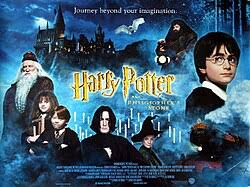The Enduring Legacy of Harry Potter Movies

Introduction
The Harry Potter movies, based on J.K. Rowling’s beloved book series, have significantly impacted the film industry since the release of the first film, ‘Harry Potter and the Philosopher’s Stone’, in 2001. These films have not only become a cultural phenomenon but have also played a crucial role in shaping modern cinema, influencing storytelling techniques, special effects, and the fantasy genre as a whole.
The Journey Through the Wizarding World
The eight-installment film series, which concluded with ‘Harry Potter and the Deathly Hallows – Part 2’ in 2011, showcases the journey of a young wizard, Harry Potter, and his friends Hermione Granger and Ron Weasley. Set against the backdrop of a richly developed magical world, the films have captivated audiences with their imaginative visuals, complex characters, and themes of friendship, bravery, and the battle between good and evil.
Box office statistics reveal the profound impact of the series, with all eight films grossing over $7.7 billion worldwide, making it one of the highest-grossing film franchises of all time. Each film received critical acclaim, with several nominated for Academy Awards, particularly for achievements in visual effects and production design.
Influence on Modern Cinema
The legacy of the Harry Potter films extends beyond mere box office success. They pioneered the trend of adapting young adult novels into major film series, paving the way for franchises such as ‘The Hunger Games’ and ‘Twilight’. Additionally, the films have set a benchmark for fantasy narratives, inspiring filmmakers to invest in innovative special effects and elaborate world-building.
The impact of the Harry Potter movies can also be felt in how they have cultivated a dedicated fan base, leading to events, conventions, and merchandise that continue to thrive today. The franchise has expanded its reach through stage adaptations like ‘Harry Potter and the Cursed Child’, theme parks, and spin-off films such as the ‘Fantastic Beasts’ series.
Conclusion
The Harry Potter movies are not just films; they are a significant chapter in cinematic history that reshaped the landscape of modern filmmaking. Their legacy continues to inspire future generations of filmmakers and audiences alike. As we see new adaptations and spin-offs emerge, the influence of Harry Potter on cinema and pop culture remains undeniable. The wizarding world that Rowling created has become a timeless part of global culture, reminding us of the power of storytelling and imagination.
